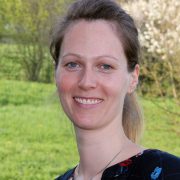
Sophia Walther
“I felt that scientific exchange was fostered both directly through collaboration with external partners on the project and through invitation to and participation in ESA meetings, which I found both very valuable and enjoyable. I also appreciated any chance to exchange with other fellows on their experiences and professional choices.”
After the end of the Living Planet Fellowship, Sophia was continuing as a PostDoc at MPI for Biogeochemistry in the FLUXCOM-X core team.
Biogeosciences (2024)
Technical note: Flagging inconsistencies in flux tower data
Biogeosciences (2024)
NEE estimates 2006–2019 over Europe from a pre-operational ensemble-inversion system
Atmospheric Chemistry and Physics (2022)
Technical note: A view from space on global flux towers by MODIS and Landsat: The FluxnetEO dataset
Biogeosciences (2022)
Contrasting drought legacy effects on gross primary productivity in a mixed versus pure beech forest
Biogeosciences (2022)
Environmental Research Letters (2022)
Sci Data (2022)
Environment-sensitivity functions for gross primary productivity in light use efficiency models
Agricultural and Forest Meteorology (2021)
Revisiting Global Vegetation Controls Using Multi-Layer Soil Moisture
Geophysical Research Letters (2021)